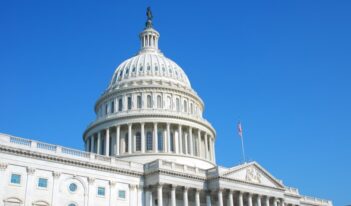
To improve government’s performance, look at what it gets right.
Paul Verkuil’s thoughtful call for a government that attracts and retains the best and brightest begs the question of why so few elected officials seem to care about the serious issues Verkuil raises and why legislative policy proposals seem so limited or short-sighted. One explanation for this state of affairs is the prevalence of bad anecdotes about public service that drive policymaking.
Imagine if, when you picked up the newspaper this morning or checked your mobile device, you read the following headlines:
“Thousands of planes land safely today”
“Billions of pieces of mail delivered on time just like yesterday”
“National parks clean and safe yet again”
“Nation’s airports and ports safe and secure”
If you read headlines like this every day would it influence your perceptions of the federal workforce? I suspect it would and it would change the opinions of elected lawmakers as well.
Of course, none of these headlines is ever written even though they are true. Stories with headlines like these do not increase television ratings or newspaper readership and so they are not written, retweeted, or talked about by pundits.
There are plenty of government failures to talk about (full disclosure: I teach a class at Vanderbilt University called Government Failure). The recent debacles involving the hacking of government personnel records held by the U.S. Office of Personnel Management and falsified appointment records at Veterans Affairs (VA) hospitals are just examples. We should not forget the Deepwater Horizon Oil Spill, the 2008 Economic Crisis, or Hurricane Katrina.
But, there are plenty of successes, too. There are notable triumphs that should be trumpeted and everyday successes that make our government a shining example worldwide. This government rebuilt Europe and sent a man to the moon. Every day government agencies quietly innovate, regulate, forecast, administer, and deploy effectively and without incident.
We get biased news about government agencies. The overwhelming focus on the negative stories shapes perception and public policy. We find abysmal service in the VA and we propose to make it easier to fire federal employees, including those who have nothing to do with the poor performance. General Services Administration (GSA) executives throw a lavish conference in Las Vegas and other federal employees inside and outside the GSA have their travel, training, and conference activities restricted.
Policy making by bad example is bad policymaking. Consider a hypothetical MBA curriculum based only on lessons from companies that had failed, with no consideration of companies that succeeded. Future business leaders would get a ton of advice to not do this and avoid doing that but very little advice about what actually to do to have a successful business. Likewise, policymaking by bad example is usually punitive – stop doing this, no more of that, if you want to do this, make sure you fill out this form or follow these guidelines.
It is also the case that few reliable lessons can be learned only from bad examples. Suppose that all failed firms in our MBA curriculum used a controversial data tracking system. Should we conclude that future executives need to use a different system in order to be successful? Not necessarily. It is possible that all of the successful firms use this same system. If successful and unsuccessful firms use the same system, it is unlikely that the tracking system is a key determinant of success or failure.
Just like the MBA curriculum, evidence-based decision making in government requires evidence drawn from the whole range of agencies and employees, the strugglers and high flyers. Where there is variation in performance it is possible to isolate factors that distinguish the high flyers from the strugglers.
In a recent survey of federal executives I fielded with Vanderbilt PhD student Mark Richardson, Princeton University, and the Volcker Alliance, we found a significant amount of variation in the skill and performance of federal agencies. The evidence does reveal that the agencies mentioned above are struggling, both in their own assessment and the assessment of their peers. But others are doing very well, recruiting the best talent, promoting workers on the basis of merit alone, removing or reassigning under-performers, and working hard to keep their best. They are proactive, forward looking, and performing at a high level.
It is systematic data like this that needs to be used to make policy decisions about the federal personnel system. It turns out that many successful agencies work under a similar personnel system as the VA and do the same kinds of conferences and training as GSA. So, what explains variation in workforce skill? It turns out agencies with big skills gaps struggle with recruitment and retention of the best employees. Efforts to make it easier to fire government employees and take away conferences and training without comparable efforts to fix the recruitment and retention of excellent employees may contribute to, rather than solve, the most important existing problems.
Elected officials engaged in serious efforts to improve government performance should be applauded. Their efforts should be guided by an accurate picture of the federal system as it exists, including details about the success of federal efforts to land planes, deliver mail, care for our parks, and protect our points of entry.
This essay is the third in a four-part Regulatory Review series, Good Government Requires Good People.




